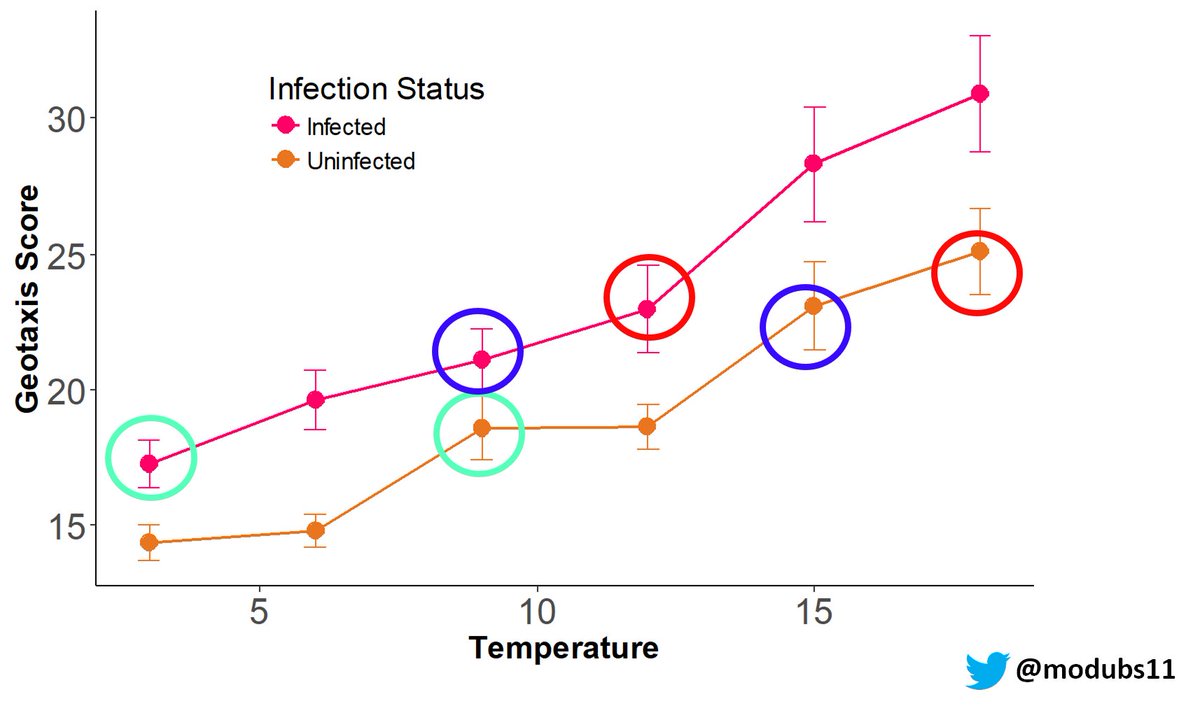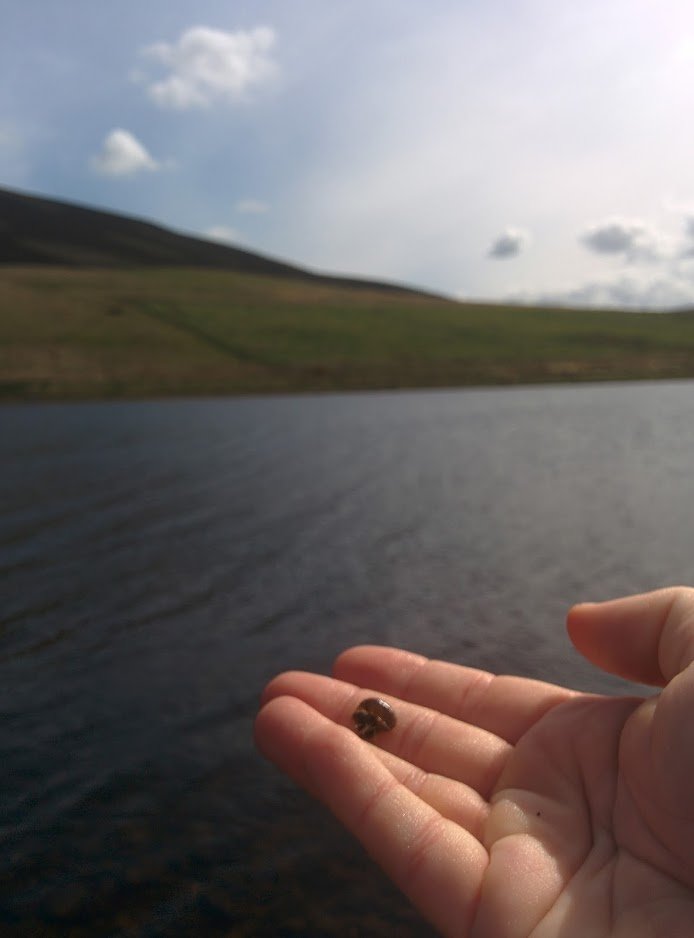Everyone! New paper out in @SpringerEcology #Oecologia with @donohueian & @TCDParasitology! "Warming can alter host behavior in a similar manner to infection with behavior-manipulating parasites". Why is this paper so awesome? Thread below! https://link.springer.com/article/10.1007/s00442-020-04745-2">https://link.springer.com/article/1...
The big take away- amphipods who are infected with parasites behave as if it& #39;s about 6 degrees warmer, a finding that was consistent across a pretty large gradient. Infected individuals moved upwards & towards light, where they& #39;re vulnerable to predators.
These finding suggest that temperature and infection are important drivers of host activity, which may have consequences for how their hosts function within their environments. Neat!
It started with an observation- amphipods infected with parasites were WAY smaller than those without. We had a few hypotheses as to why, but my two favorites were:
1. The parasite steals lots of energy from the host
2. The parasite makes the host get eaten really quickly
1. The parasite steals lots of energy from the host
2. The parasite makes the host get eaten really quickly
We set up an experiment to test how much energy the parasite takes & to see how that relationship might change over the yearly temperature range where the amphipods live. After a lot of 22+ hour days (bad design on my part) we had an answer: the parasite doesn& #39;t take much energy
That was great, but didn& #39;t fully answer to our question. If the amphipod hosts get eaten, they pass the parasite on to their predator, which allows the parasite to reproduce. We suspected the parasite changes the behavior of the host, making them more vulnerable to predation.
However, we didn& #39;t know how strong that response might be in Ireland, or how that response could change over temperature. We wanted to know: does the parasite change host behavior more or less when it& #39;s hot or cold? We set up experiments and found...
Having parasites made the amphipods behave in a way that increases their predation risk at every temperature, but increasing temperature also increased risky behavior. Behavior changes with infection are really clear & might be why only small infected individuals are found.
As global temperatures increase, we expect to see lots of changes in animal interactions, and this shows just one way in which hosts & parasites may respond. I& #39;m super happy to answer any questions & email a copy of the paper to anyone interested.
This paper has been such a labor of love and I owe such a debt of gratitude to @donohueian & Celia Holland for helping me along the way & always believing in me. @yodacomplex & @katatrepsis & @y_buckley gave such helpful feedback throughout the process.
Huge thanks to @_ptierney who was crucial to the first pilot behavior experiment, @penkmar who gave great advice on physiology experiments, @healyke & @Roo_Kelly who helped with stats, basically all of @TCDZoology who made this possible & @IrishResearch for funding me.

 Read on Twitter
Read on Twitter




